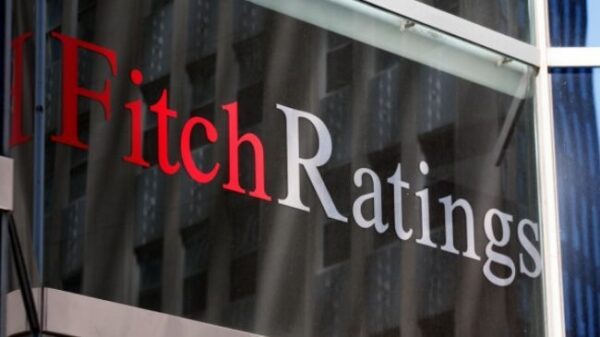Fitch Ratings agency upgraded Ghana’s long-term foreign currency issuer default rating (IDR) from “Restricted Default” (RD) to “B-” on Monday, June 16, with a stable outlook. This decision, according to Fitch, reflects the normalization of relations between Ghana and a significant majority of its external commercial creditors.
Additionally, the agency anticipates a gradual improvement in the country’s ability to meet its foreign currency obligations. The service of debt denominated in foreign currencies, including domestic dollar bonds, is expected to reach 1.2% of GDP (1.2 billion USD) in 2025, and then 1.4% (1.9 billion USD) in 2026. These forecasts are based on the assumption of a complete debt restructuring by 2025. Interest payments on this debt would represent 0.5% of GDP in 2025 and 0.4% in 2026, respectively.
Regarding local currency debt (excluding Treasury bill refinancing), Fitch predicts that it will mobilize around 3.8% of GDP in 2025 and 3.9% in 2026, with a majority allocated to interest payments (3.6% and 3.7% respectively). Consequently, the interest/income ratio is expected to remain generally stable at 26% in 2025 and 2026, after dropping from a peak of 48% in 2021.
On the external front, the current account surplus, which is expected to peak at 4.3% of GDP in 2024, would decrease to 1.1% in 2026. This trend is explained by an anticipated increase in imports supported by economic growth, as well as an expected decline in the prices of the country’s main exports.
At the same time, inflation is expected to gradually decelerate, dropping from 23% in 2024 to 15% in 2025, and then to 10% in 2026. This trend would be supported by the appreciation of the cedi since April 2025, the maintenance of a rigorous monetary policy, and budgetary consolidation efforts.
Regarding economic growth, it would remain dynamic, with an expected growth of 4% in 2025 and 4.5% in 2026. This dynamism would be driven by the recovery of the agricultural sector, especially after several years of declining cocoa production, and by the continued expansion of the industrial and services sectors.
However, Fitch warns of several risks that could individually or combined lead to a negative action on Ghana’s rating. Among the identified factors are new liquidity tensions, a loss of confidence in the government’s ability to refinance its short and medium-term obligations, as well as increased pressures on external liquidity. The latter could result in a decrease in international reserves in case of a widening current account deficit.


